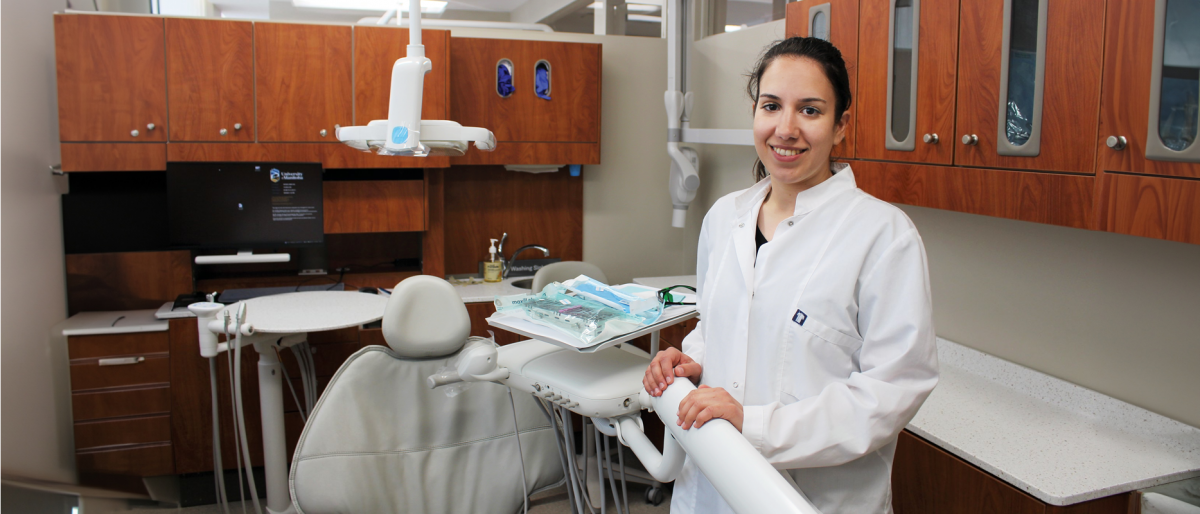
Implant Investigator
As a periodontist, Dr. Chrysi Stavropoulou [MDent/18] is a specialist who focuses on the gums and bone that support teeth.
She is also an expert at surgically placing dental implants to replace missing teeth. An implant – a titanium screw that fuses with the jawbone – replaces a lost tooth’s root and provides an anchor for an artificial tooth.
“Implants have many benefits for patients, but they also carry some risks,” says Stavropoulou, assistant professor of periodontology and acting director of the graduate periodontics program at the Dr. Gerald Niznick College of Dentistry.
Like natural teeth, implants are prone to a buildup of bacteria and the formation of stubborn bacterial biofilm. This can result in a peri-implant disease, an inflammatory condition that is harder to treat than gum disease and can cause the implant to loosen.
“We need to better understand peri-implant diseases,” the professor says. “I enjoy research because I’m always learning something new that can potentially improve treatment and help the dental community.”
In a current research project funded by the Manitoba Medical Service Foundation, Stavropoulou and her team are collecting samples from around patients’ implants and their saliva to understand the role of bacteria and fungi in peri-implant diseases. They are also analyzing cytokines, proteins that are important in the immune system.
This research is crucial, Stavropoulou says, because nearly 20 per cent of people with dental implants have peri-implantitis, a form of peri-implant disease that causes gum inflammation and bone loss.
“We are the first to look at the role of fungi in peri-implant disease,” she says. “Our hypothesis is that bacteria and fungi, together with the patient’s immune response, determine peri-implant health or disease.
“We’re using the latest methods for analyzing plaque, bacteria byproducts and cytokines.”
Stavropoulou grew up in Greece and completed her dentistry degree in 2013 at the University of Athens. She came to Canada to earn her master’s in periodontics at UM, joining the faculty in 2019. She was attracted to the specialty, she says, because it combines surgery with biology and immunology.
“There’s an art to periodontology. You’re doing a lot of fine surgical work. You need a lot of attention to detail, and your hand needs to move like a paintbrush.”
In 2018, Stavropoulou and UM colleagues published her master’s thesis research in the Journal of Periodontology. The study was a randomized clinical trial comparing two methods for wound closure during surgery in which connective tissue is harvested from the roof of the mouth to be used for a gum graft.
One group of patients had the wound closed with a tissue adhesive, and the other with sutures. The results showed no significant differences in postoperative discomfort, pain or healing, and the adhesive application was about five minutes faster than suturing.
Stavropoulou hopes to conduct a clinical trial to compare methods for managing defects caused by peri-implant diseases.
“We need to know more about treatments that range from using lasers on the implant surface, to doing surgery to recontour or build back the bone, to grinding the metal of the implant smooth so bacteria can’t stick to it as well.
“The more research data we have, the better we can choose the right approach for each patient.”






